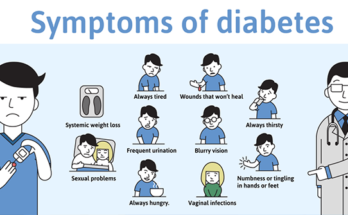Introduction
If you’re a parent, you know how distressing it can be to hear your child coughing constantly. Not only does it affect their sleep and daily activities, but it can also leave you feeling helpless and worried. A persistent cough can disrupt your entire household, turning peaceful nights into sleepless ones and calm days into anxious ones.
In this blog post, we’ll explore the various causes behind a child’s constant cough, gain insights from pediatric experts, and provide practical tips for managing it at home. By the end, you’ll have a better understanding of when to seek professional help and how to create a healthier environment for your little one.
Understanding the Causes
Persistent coughing in children can stem from various reasons. Identifying the root cause is critical to finding an effective solution.
Allergies
Allergies are one of the main culprits behind a child’s constant cough. Common allergens such as pollen, pet dander, and dust mites can trigger an allergic reaction, leading to coughing.
Asthma
Asthma is another significant reason for chronic cough in children. This condition narrows the airways, making it difficult to breathe and often causing a persistent cough.
Viral Infections
Viral infections like the common cold or flu can result in a lingering cough even after other symptoms have subsided. These infections irritate the respiratory tract, leading to ongoing coughing.
Expert Advice
Recognizing Concerning Symptoms
It’s essential to know when a cough is more than just a minor annoyance. Pediatricians advise paying attention to symptoms such as difficulty breathing, wheezing, and a high fever. These could indicate a more severe condition requiring medical intervention.
When to Seek Professional Help
Experts suggest that if a cough persists for more than a week, or if it’s accompanied by symptoms like weight loss, night sweats, or persistent fever, it’s time to consult a healthcare professional. Early diagnosis can prevent complications and ensure appropriate treatment.
Advice from Pediatricians
Pediatricians emphasize the importance of observing your child’s overall health and behavior. A child who remains active and happy despite the cough is less likely to have a serious condition. However, any signs of distress or fatigue warrant immediate medical attention.
At-Home Management
Maintaining a Healthy Environment
Keeping your home free from common allergens can significantly reduce your child’s cough. Regularly vacuuming carpets, washing bedding in hot water, and using air purifiers can help minimize exposure to allergens.
Using Humidifiers
Dry air can exacerbate a cough. Using a humidifier in your child’s room adds moisture to the air, soothing the respiratory tract and reducing coughing. Make sure to clean the humidifier regularly to prevent mold build-up.
The Importance of Hydration
Keeping your child well-hydrated is crucial. Fluids help thin the mucus, making it easier to expel and reducing the frequency of coughing. Offer water, herbal teas, and clear broths to keep them hydrated.
When to See a Doctor
Over-the-Counter Remedies
While over-the-counter medications can provide temporary relief, they’re not always sufficient. If your child’s cough doesn’t improve with these remedies, it’s essential to seek medical advice.
Importance of Professional Advice
A healthcare professional can accurately diagnose the underlying cause of the cough and recommend appropriate treatments. This may include prescription medications, inhalers, or lifestyle changes.
Conclusion
Dealing with a child’s constant cough can be challenging, but understanding the causes and knowing when to seek help can make a significant difference. By maintaining a healthy environment, using effective home remedies, and staying alert to concerning symptoms, you can help your child breathe easier.
For more personalized advice and expert tips, consider booking a consultation with a pediatric specialist. Proactive health management is key to ensuring your child’s well-being and peace of mind for your family.



